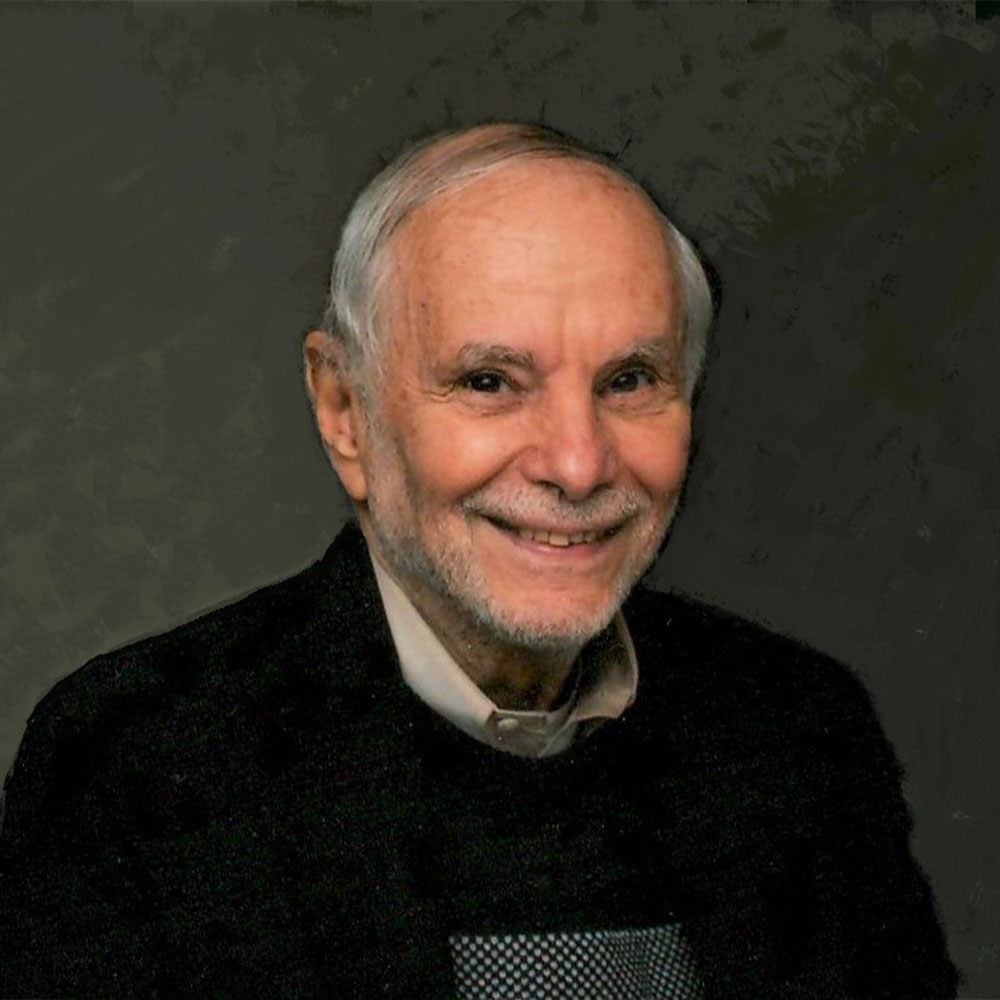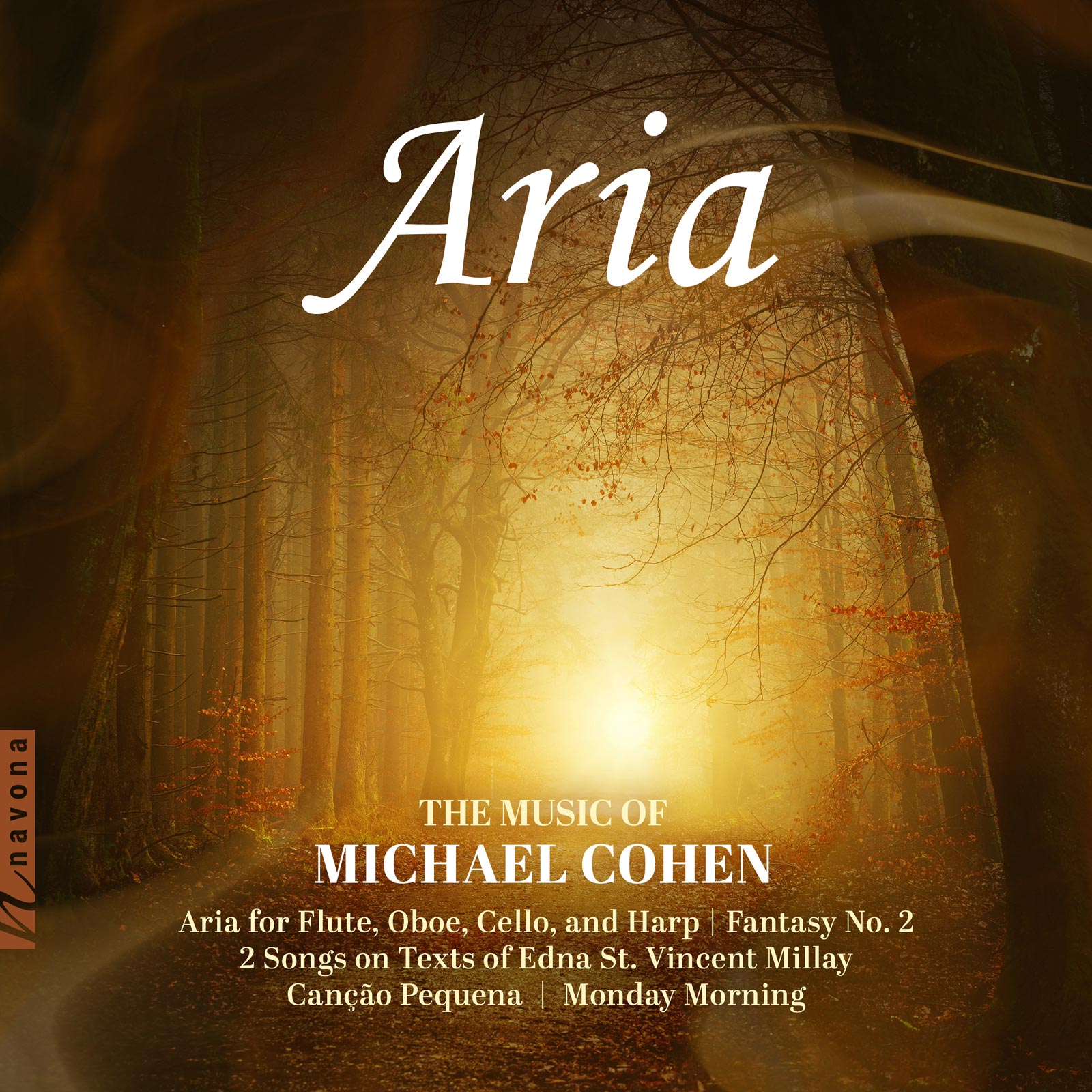
Composer Michael Cohen delivers an enticing follow up to his 2022 Navona Records release with ARIA, his second full album of original chamber works. Featuring a mix of studio and live recordings captured from various points in his diverse and expansive career, Cohen’s music emanates a thorough line of vitality and fervor. While strikingly rooted in tonal principles, these works embrace an elegant, confident, and ebullient character, permeated by a magnificent, effervescent spontaneity throughout.
Today, Michael is our featured artist in the “Inside Story,” a blog series exploring the inner workings and personalities of our composers and performers. Read on to learn how he discovered his fine-tuned ear for music at an early age…
What were your first musical experiences?
The road to my musical career started at a very early age… 4 or 5. (I am told). While waiting in the doctor’s office, I wandered over to an old piano in the corner and plunked out the melody that was playing on the radio. My mom was shocked and told the doctor what happened. He encouraged my dad to get a small piano and start me on piano lessons.
As my lessons proceeded and I started to advance to more interesting pieces, I took some crayons and made changes in the music. My teacher was horrified and said: “you can’t change the composer’s music.”
I said “I like mine better.”
Eventually I was enrolled in the Dalcroze School of Music. a music school that specialized in working with children. So I now had piano lessons and an enrollment in a very full music program… sight reading, eurhythmics, counterpoint, composition, and more.
Living in New York was a real plus as I went to the High School of Music and Art where there was a composition course. This was the first time I was surrounded by fellow composers and that was a really exciting four years of composing and growing, and ultimately arriving at Brandeis University and studying with Irving Fine and Harold Shapero.
If you weren’t a composer, what would you be doing?
I would still be involved in music. There are many opportunities besides composing to be in the music world.
I was a Senior Vice President and Director of Music at Grey Advertising for 30 years. I produced hundreds of sound tracks for commercials, I hired the musicians, the singers, the engineers… I was surrounded by the best talent in New York… a truly awesome time.
Take us on a walk through your musical library. What record gets the most plays?
Well, this goes back to the days of LPs. I was aware of the pop music world of the Hit Parade, but there wasn’t anything for classical music. So I decided to make a list of my records, and every time I played one, I would give it a check mark. At the end of the month, I would tally the results.
The Russians were always at the top. Scriabin, Rachmaninoff, Prokofiev. Once in a while Copland and Barber hit the top ten… a few oddities, Bloch and R. Strauss.
What emotions do you hope listeners will experience after hearing your work?
It depends on the piece, but actually, eliciting any emotion from an audience is great. I think of the music that has moved me, and I hope that my music moves others similarly.
My works are steeped in tonality, and while I tinkered with 12 tone and other styles — trying to expand as a composer, I always return to what I really feel is my true gift; lyricism and counterpoint are my favorite starting points.
What advice would you give to your younger self if given the chance?
Needing to make a living after my discharge from the Army, I pursued work in the theater. I was a facile pianist and could sight read. Those performance skills took me away from composing, but enriched another part of my musical experience.
My advice to myself would be, “don’t change a thing.”
I might have composed more classical works… but all the other jobs — playing in the pit of a Broadway show, being part of a USO tour to Greenland, music director on a cruise ship and at The Upstairs at the Downstairs in the 1960s — all added to my path to being a better musician.
I expanded my scope and composed many pieces for TV ads — a song for Madeline Kahn’s Broadway debut, (We worked together at the Upstairs at the Downstairs), an Opera, Rappaccini’s daughter and a musical Yours, Anne based on the Anne Frank Diary.
I am happy with the choices I made… No regrets…

New York City native Michael Cohen has a diverse and expansive career as a composer. His many compositions include works for chamber ensemble, musical theater, opera, and television. He attended the High School of Music and Art and the Dalcroze School of Music, graduated cum laude from Brandeis University, and studied composition with Harold Shapero and Irving Fine.

